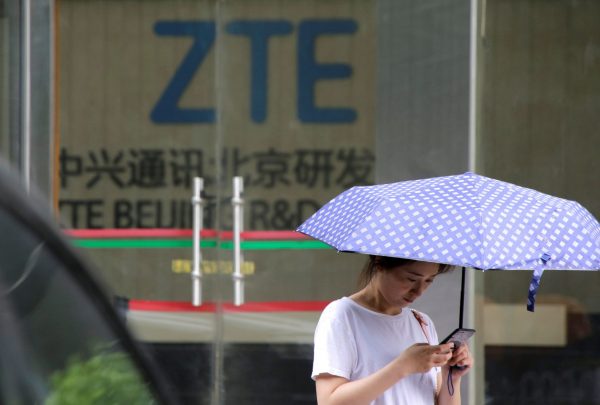Developments in People’s Daily, the official newspaper of the Chinese Communist Party, suggest that the change was prompted by Chinese political elites’ rational reassessment of China’s economic and business interests as the trade war unfolded.
After Trump signed a presidential memorandum on 22 March 2018 to announce the United States’ intention to increase tariffs on a proposed list of imports from China, China’s immediate reaction was nationalistic. On 24 March, People’s Daily published an article declaring that if the United States wanted a trade war, then China would fight back. This was followed by a 12 April article, ‘Let the United States remember the lesson’, which reinforced China’s hawkish position on the bilateral trade conflict by reiterating that China would retaliate if the United States proceeded with the threatened tariffs.
The publication of an article on 21 May titled ‘To uphold the course of win-win cooperation’ marked a change in China’s position. The article argued that reciprocal trade between the two countries is the bedrock of the bilateral relationship. From 6 to 15 July People’s Daily published 10 articles on the trade war, all criticising the imprudence and short-sightedness of the United States in dealing with the trade friction between the two countries. Hawkish nationalistic views were scant.
Even US Vice President Mike Pence’s confrontational speech delivered at the Hudson Institute on 4 October — in which Pence stated that the Trump administration would stop China from seeking supremacy in the Western Pacific region and interfering in US domestic politics — did not revitalise Chinese nationalism. Instead, People’s Daily published a defensive article with the title ‘Clumsy craft of deceit’ on 6 October proclaiming that the allegations against China in Pence’s speech are groundless.
The downturn of the nationalistic tone signalled a change in Chinese political elites’ perception of Trump’s resolve in dealing with the bilateral trade conflict. They did not take Trump’s initial presidential memorandum seriously and assumed that he was simply making empty threats that would not actually be carried out. This assumption made Beijing over-optimistic about the prospect of stable China–US relations under the Trump administration, despite his anti-trade and anti-China campaign rhetoric.
The over-optimism soon faded when, in April, Washington banned US firms from exporting chips and other components essential for manufacturing smart phones to ZTE — a state-owned enterprise and one of China’s transnational tech giants, which Washington accused of violating commercial sanctions on Iran and North Korea. Since ZTE had been continuously importing chips from the United States, the ban almost paralysed its operations and put roughly 100,000 Chinese jobs at risk.
After a series of negotiations between senior leaders of the two countries, US Secretary of Commerce Wilbur Ross announced on 7 June that the Trump administration had agreed to withdraw the ban on ZTE — on the condition that ZTE pay an over US$1 billion fine and embed a US supervisory team into its operations. Since the ZTE incident, a defensive attitude with an emphasis on interdependence and cooperation has prevailed in People’s Daily.
Chinese political elites seemingly began to recognise Trump’s determination to apply his ‘America First’ policy to the bilateral trade relationship as the trade war progressed. In response, Beijing has pursued both cooperative and competitive approaches to dealing with the United States.
On the one hand, Beijing has indicated more than once to the United States that China is willing to settle the trade dispute through negotiations. China does not want to see the intensification of the bilateral trade war and is likely to compromise on many issues. On the other hand, Beijing has criticised Trump’s pursuit of trade hegemony and announced that increased tariffs would be imposed on goods imported from the United States, with an emphasis on agricultural products (the purpose being to deflate US farmers’ support for Trump).
China’s changing response to the trade war suggests that the country’s political elites did not foresee the trade war and that, because of this, there may be some puzzlement and dissension among them. Since September the use of the phrase ‘trade war’ has been reduced on People’s Daily and replaced with the less aggressive ‘trade friction’, reflecting Chinese political elites’ uncertainty and desire to play down the economic dispute.
China cannot afford a complacent attitude and has tended towards cautiousness in its response to the trade war. Chinese political elites will continue to closely follow the debate on China–US trade taking place among their US counterparts and pragmatically adjust its response as circumstances change.
Jia Deng is a PhD candidate at the Department of International Relations, Nanjing University. She is currently a Visiting Fellow at the Strategic and Defence Studies Centre, The Australian National University.

